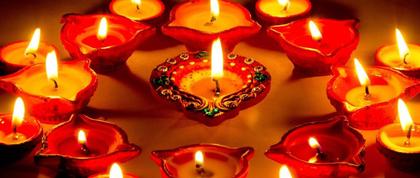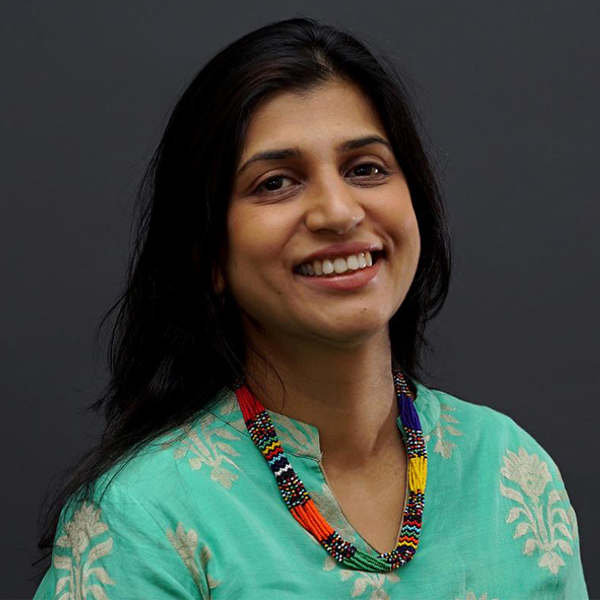
This weekend marks Diwali, the Hindu festival of lights celebrated by over a billion people across the globe, specifically South Asians. The essence of Diwali is to celebrate “good over evil,” justice and righteousness. Homes are lit up with lanterns and oil lamps, and the sounds of firecrackers are everywhere.
The interpretation of “good over evil” depends in part on geography. For instance, families in Gujarat (where I come from) buy new clothes and shoes, clean their homes and make intricate circular patterns with colored powders, grains and flower petals called Rangoli at the entrance of their homes. There are nine nights (Navratri) of dancing, and people pray to Lakshmi, the goddess of wealth, for a prosperous new year.
Pictured: Rangoli made by Niyati's daughters with lentils and beans.
However, in my mind Diwali is also associated with two major public health challenges. One involves the production of millions of dollars’ worth of firecrackers using child trafficking to provide cheap labor. For example, in Tamil Nadu over 45,000 children work in unsafe conditions where infrastructure is weak – but profit margins are large. Fatal burns and accidents are a regular occurrence for these little children, usually ranging 5-14 years old. Consumers are not entirely safe either, with more cases of burn fatalities around Diwali. And with each household setting off firecrackers, there is excessive air pollution and higher rates of asthma and bronchitis.
The second public health concern is the food extravaganza that remains the focus of Diwali celebrations. People gather around dishes that are rich, oily and deep fried – and the desserts are either fried or soaked in thick, sugary syrups. South Asians have high rates of diabetes, and post-Diwali indulgence poses a threat to glycemic control, accounting for a spike in hospitalization rates. From alcohol hangovers to uncontrolled blood sugar levels and excessive insulin doses, the Diwali feast can wreak havoc on the body. To make matters worse, intermittent fasting to over-correct for excess calories takes its toll on metabolic regulation.
As a nutritionist, I encourage well-planned menus with mindful eating and controlled portions that allow celebrants to avoid adverse health conditions. So enjoy Diwali but with a pinch of common sense and a dash of moderation -- and with awareness about its impact on the environment, on the social evil of child labor, and on our personal health.
Join me in lighting an oil lamp for peace and prosperity. HAPPY DIWALI and SAAL MUBARAK (Happy New Year)!

Niyati Parekh, PhD, MS, RD
Director of Doctoral Studies,
Associate Professor of Public Health Nutrition